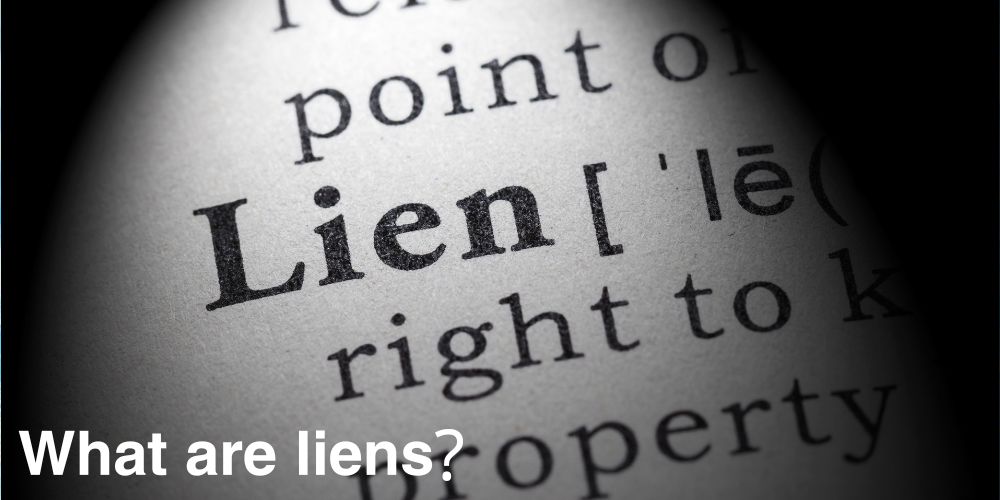
Liens have come to be quite a necessity in most real estate transactions that involve mortgages and creditors. This is because creditors need to have a guarantee that they would get full repayment on the money they are lending, other than just words and promises.
What are Liens?
A lien is a legal claim on a property that allows the creditor legal rights to said property in the event that the debtor defaults in making payments. Without this form of protection, lenders have no way of protecting their interests or ensuring full payment, and this could result in significant losses on their part.
While the creation of a lien might be met with mixed feelings, it is quite important to ensure that creditors have a safety net in a situation where the debtor is unable or unwilling to pay up what is owed. If a property has a lien, this means that a lender can begin foreclosure on the property should the owner fail to repay what was borrowed. However, if the debtor can, and does repay what is owed, the liens are cleared and the property owner retains full rights to the property.
Effects of Liens on Your Property
Having a lien placed on your property is not necessarily a bad thing. If you purchased a house using a mortgage, then you must have entered into a contractual lien agreement with your lender. As long as you do not default on your payment, the lien holder (the creditor) has no legal rights to begin foreclosure on your property.
However, a lien on your property can limit the actions you can take on the property. The most noticeable effect a lien has on a property is that it prevents it from getting sold. The sale must either be delayed or canceled until the lien is paid in full. In some cases, however, the property seller could bargain with the lien holder and an agreement could be reached that the lien will be paid off with some of the proceeds from the sale.
Characteristics of Liens
Creating a lien is not a process done haphazardly. For a lien to be valid, it must have the following characteristics:
- The debtor must have collateral or property equal in value to the debt
- The lien must be created in a fair and just manner, without fraud, force, or any form of cajolement
- The right of lien cannot be transferred from one person to another
- The lienholder is only allowed to begin foreclosure on the property in question after the debtor has breached the terms of the agreement
- The conditions of the lien must be in agreement with the laws of the state
- A lien is terminated once the conditions of its creation are met
Can There Be More Than One Lien On a Property?
Yes, there can be multiple liens on a property. For example, if a homeowner uses their property, which was purchased using a mortgage that has not been paid off as collateral for another loan. On a scale of priority, the first lien holder receives full payment first before any of the other holders following the sale of the property.
How Do I Remove A Lien On a Property?
Before a property can be sold, the lien on the property has to be fully cleared. There are various ways to remove a lien placed on a property. They include:
- Payment of debt owed. This is the most common method of removal. Settling with the lien holder and meeting the conditions stated in the agreement renders the lien invalid and the property owner retains full rights to the property
- You could also bargain with your lien holder on a payment plan involving a discount or a different method of payment that does not involve cash
- Finally, you could challenge the validity of the lien in court. Before going ahead with this, you need to have indisputable proof that the lien is invalid before the court can proceed on the matter

